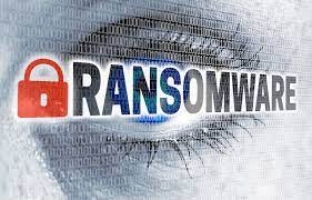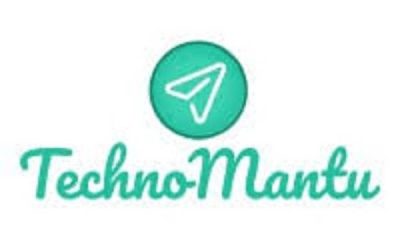Press Release
After discontinuing support for ransom payments, insurer AXA was attacked by ransomware.

A ransomware cyber assault has targeted the Thai, Malaysian, Hong Kong, and Philippine branches of the world’s largest insurance company, AXA.
The Avaddon ransomware organisation claimed yesterday, as reported by BleepingComputer, that it had stolen 3 TB of private data from AXA’s Asian operations.
Additionally, AXA’s international websites were down yesterday for a while due to a Distributed Denial of Service (DDoS) attack, according to BleepingComputer.
The group claims that the compromised data collected by Avaddon includes copies of ID cards, bank account statements, claim forms, payment records, contracts, claim forms for customers that reveal their sexual health diagnosis, and more.
The group’s statement follows AXA’s revelation that it would no longer cover ransomware extortion payments when underwriting cyber-insurance plans in France.
Asian AXA offices are targeted by a ransomware organisation.
The ransomware organisation Avaddon took responsibility for the attack on AXA’s offices in Asia yesterday.
The group also asserted that there was a DDoS attack ongoing against AXA’s websites hosted in Thailand, Malaysia, Hong Kong, and the Philippines:
The Avaddon ransomware gang initially made the threat to launch DDoS assaults to take down victims’ websites or networks until they get in touch and start negotiating to pay the ransom in February 2021.
When ransomware gangs started deploying DDoS assaults against their victims as an extra point of leverage in October 2020, BleepingComputer became the first publication to report on this new development.
About a week after AXA announced that payment for ransomware extortion settlements would no longer be included in their cyber-insurance policies sold in France, Avaddon announced the attack on AXA’s infrastructure.
Avaddon started dumping part of the stolen data on their leak site yesterday, as seen by BleepingComputer, even if the exact date of the incident remains unknown.
Avaddon also threatened to expose AXA’s priceless records if the insurance firm didn’t get in touch with them and work with them within 10 days.
The gang asserts to have obtained 3 TB of AXA data, which includes:
client medical records (including those containing sexual health diagnosis)
customer claims payments to consumers’ bank accounts scanned records content only available to hospitals and physicians (private fraud investigations, agreements, denied reimbursements, contracts)
Identity cards, passports, and other forms of identification
AXA: Access to data by a Thai partner only, “No Evidence”
AXA responded when approached by BleepingComputer as follows:
A recent targeted ransomware assault on Asia Assistance affected its IT operations in Thailand, Malaysia, Hong Kong, and the Philippines.
As a result, someone was able to access some data handled by Inter Partners Assistance (IPA) in Thailand.
“At this time, there is no proof that any additional data was accessed in Thailand beyond IPA.”
“The incident is being investigated by a dedicated taskforce that includes outside forensic experts. Partners in business and regulators have been informed.”
According to an AXA spokesman, “AXA takes data privacy very seriously and will take the appropriate procedures to notify and help all corporate clients and people impacted” if IPA’s investigations reveal that sensitive data of any persons have been affected.
The incident’s timing is interesting in light of this week’s FBI and Australian Cyber Security Centre (ACSC) alerts on ongoing Avaddon ransomware assaults aimed at enterprises from a wide range of industries in the US and around the world.
Attackers who use ransomware on enterprises continue to expand and interrupt many operations while demanding extortionate ransom payments.
The DarkSide cyberterrorist organisation recently requested $5 million to reactivate the Colonial Pipeline infrastructure.
Additionally, just this week, BleepingComputer reported that a $20 million ransomware demand was made on Ireland’s Health Services.
Press Release
The Netflix Verse

If you’re looking for Moviesflix Expertise? Then, this is where you can find various sources that provide extensive information.
MoviesVerse – TheMoviesVerse – MoviesFlixPro
moviesflix.in, themoviesflix, moviesflixpro, moviesflix, moviesverse, movies flix, moviesflix pro, movie verse, and moviesflix.
https://themoviesverse.co/page/101/
FilmyZon – Moviesflix Verse Org
moviesverse, movies verse, moviesflix, moviesflixpro, moviesflix pro, moviesverse.com, moviesverse.in, moviesflix.in, movieverse, movies flix, and themoviesverse are terms that refer to the period between March 12 and May 26, 2021. The age of Moviesverse.org.in is 11 months and 1 week. It is a domain with the extension org.in. This website is thought to be worth $9 and generates about $1 each day in revenue.
https://digitaldominar.com/wpc2027-live-log-in/
Download HD Hollywood and Bollywood Films from Moviesflix in 2022
Mar. 10, 2022 Customers can select the screen resolution for a movie on Moviesflix pro.in. At Moviesflix pro com, you may get a tonne of Hollywood, Bollywood, Tollywood, and Moviesflix pro online series for nothing. Users have the option of downloading movies in full HD format from Moviesflix pro in either 480p, 720p, or 1080p formats.
https://networth.co.in/moviesflix-download-hd-hollywood-boll
moviesflix | moviesflix | themoviesflixverse
Many premium movie titles are available on the Moviesflix Verse Pro, including films in the English, Hindi, Tamil, and Telugu languages. Hollywood films will also be available to you in High Definition. They also use 720p HD or 1080p full HD quality. The graphics may be seen more vividly and clearly than in regular movies thanks to the HD format.
https://www.keyword-rank.com/search/themoviesflixverse
Review of MoviesFlix Pro: Download Bollywood Movies
A variety of Hollywood movies are available for download in the Moviesflix Hollywood Movies area as of November 24, 2021. Action, Thriller, Crime, Suspense, Horror, Drama, Love Story, and Cartoon movies are just a few examples of the categories you can find. You can search for further relevant domains on Google. the moviesflix moviesflix uri moviesflix bollywood moviesflix verse, moviesflix pro.
The MoviesFlix Pro Review: Download Bollywood Films Moviesflix uri Moviesflix Verse
Movies | Official Netflix Website
Whether they’re terrifying, humorous, serious, romantic, or everywhere in between, movies have the power to move us like nothing else can. There are so many games, so much to do.
https://www.netflix.com/in/browse/genre/34399
TheMoviesFlix, HDMoviesFlix, and Moviesflix Pro
Moviesflix, HDMoviesflix, moviesflix.com, themoviesflix, moviesflix org, moviesflix pro, moviesflixpro, movies verse, and moviesflix are all forms of the streaming service.
Press Release
Critical GitLab flaw permits account takeover by attackers

GitLab has patched a critical severity flaw that may have let remote attackers exploit hardcoded passwords to seize control of user accounts.
Both the Community Edition (CE) and Enterprise Edition of GitLab are impacted by the flaw, which was identified internally and is designated CVE-2022-1162 (EE).
During OmniAuth-based registration in GitLab CE/EE, static passwords were unintentionally set, which led to this vulnerability.
In a security advisory released on Thursday, the GitLab team stated that “a hardcoded password was set for accounts registered using an OmniAuth provider (e.g. OAuth, LDAP, SAML) in GitLab CE/EE versions 14.7 prior to 14.7.7, 14.8 prior to 14.8.5, and 14.9 prior to 14.9.2 allowing attackers to potentially take over accounts.”
In order to thwart such assaults, GitLab strongly advised users to update all GitLab installations right away to the most recent versions (14.9.2, 14.8.5, or 14.7.7).
We STRONGLY RECOMMEND UPGRADING TO THE LATEST VERSION AS SOON AS POSSIBLE FOR ALL INSTALLATIONS RUNNING A VERSION AFFECTED BY THE ISSUES DESCRIB
A code patch made two days ago reveals that GitLab removed the ‘lib/gitlab/password.rb’ file, which was used to give the ‘TEST DEFAULT’ constant a shoddy hardcoded password.
Some GitLab users had their passwords reset.
GitLab also stated that as part of the CVE-2022-1162 mitigation effort, it reset a select few GitLab.com users’ passwords.
Additionally, it did not discover any proof that any accounts had been compromised by hackers exploiting the hardcoded password security weakness.
As of 15:38 UTC, “We completed a reset of GitLab.com passwords for a chosen selection of users,” the GitLab staff stated.
Although there is no evidence to suggest that users’ or accounts’ security has been compromised, we are nonetheless taking precautions for our users’ safety.
A GitLab representative provided the information already included in the advisory with BleepingComputer when asked how many Gitlab.com users had their passwords reset, adding that they only did it for “a selected set of people.”
A programme to recognise affected user accounts
GitLab has developed a script that self-managed instance administrators can use to find user accounts that might be affected by CVE-2022-1162, despite the fact that the firm claims no user accounts have been compromised so far.
Administrators are urged to reset the users’ passwords after identifying any user accounts that might have been impacted.
GitLab claims that over 100,000 businesses utilise its DevOps platform, and it has over 30 million estimated registered users from 66 different nations.
Press Release
CCPA NEEDS STRONGER ENFORCEMENT, BUT “AUTHORIZED AGENTS” LIKE DONOTPAY CAN MAKE IT EASIER FOR CONSUMERS TO OPT OUT OF DATA COLLECTION (KAVEH WADDELL/CONSUMER REPORTS).

Understanding the five major aspects of HRM — Employees are not just part of your organization, they are your organization. To keep your business running smoothly, employees have to be managed efficiently and their needs have to be catered to.
-

 Apps1 year ago
Apps1 year agoWhy is Everyone Talking About Hindi Keyboards?
-

 Social Media1 year ago
Social Media1 year agoWho is Rouba Saadeh?
-

 Apps1 year ago
Apps1 year agoThings you need to know about Marathi keyboard today
-

 Apps1 year ago
Apps1 year agoStuck with Your default Bangla keyboard? Isn’t it time for a change?
-

 Social Media1 year ago
Social Media1 year agoMati Marroni Instagram Wiki (Model’s Age, Net Worth, Body Measurements, Marriage)
-

 Entertainment1 year ago
Entertainment1 year ago12 Online Streaming Sites that Serve as Best Alternatives to CouchTuner
-

 Games11 months ago
Games11 months agoTop 7 Popular Puzzle and Card Games for Relaxing Your Brain on Mobile, Featuring Solitaire
-

 Entertainment1 year ago
Entertainment1 year agoMovierulz Website: Movierulzz 2021 Latest Movies on Movierulz.com












